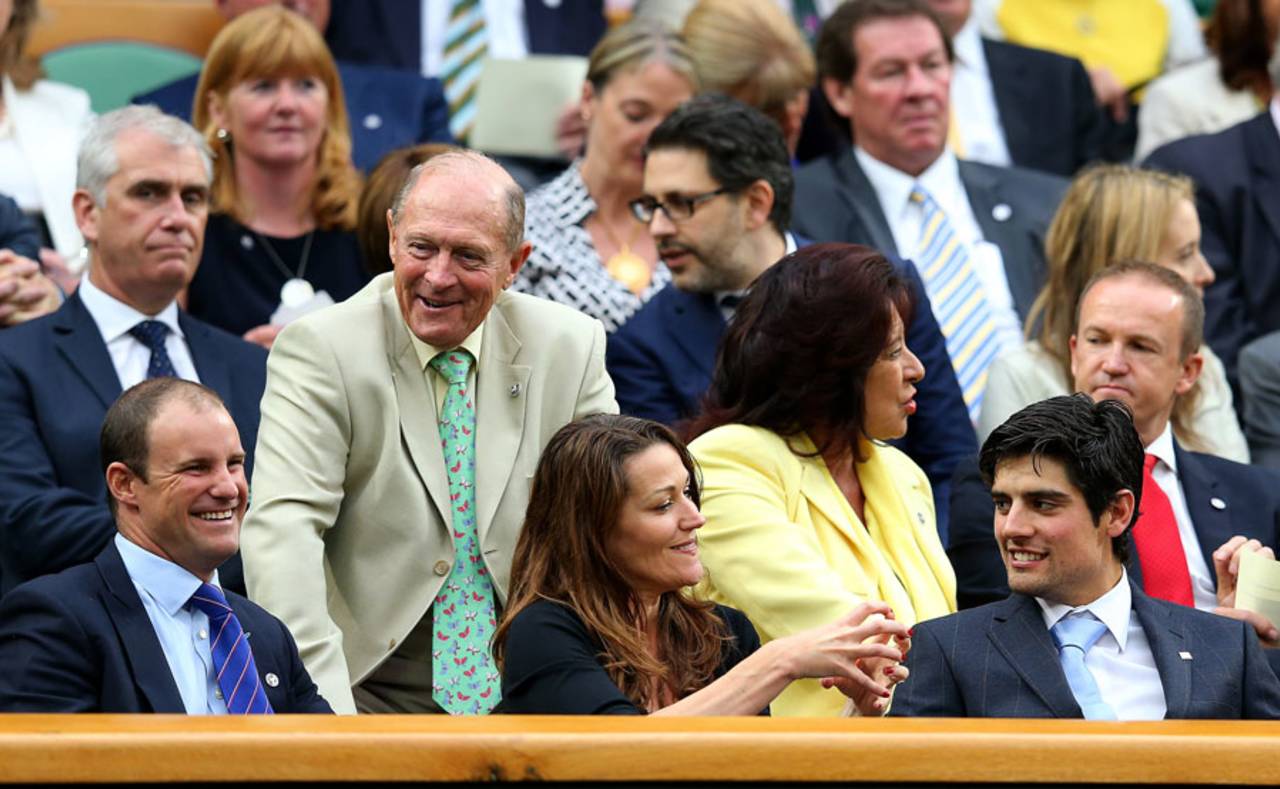My favourite
Geoffrey Boycott story was told to Leo McKinstry for his book
Boycs by David Lloyd. Apparently Boycott has a habit of dispensing with any kind of introduction when on the phone, surmising, no doubt correctly, that his is not a voice it's possible to mistake.
"Hello," said Bumble, answering an evening call.
"You and me, playing golf, tomorrow morning, 9.30."
"I can't, Geoffrey, I'm going fishing…"
"Fishing?" said Boycott, without a pause. "Aye, fishing outside off stump, that were always your problem," and with that, hung the phone up.
It's a terrific anecdote, and it demonstrates Geoffrey in all of his ragged glory, abrupt and funny, and as ever, dispensing a kernel of what he sees as the truth.
That unique persona and his singularity as a man have given him a certain distance. He might have had, as the great Arlott once said, "a lonely career", but as a commentator he is beholden to no one. There is nothing that he says on radio or in print that he would not happily say to his subject's face. He has no agenda other than his own, and that is rooted in his lifelong love of the game. His truth has set him free.
Geoffrey was 73 years old in October, but what I admire most about him is how engaged he remains with the game. His criticism is famously forthright, but it rarely has the whiff of a man who considers his era of the game to be inherently better (although people who don't hear him regularly or don't pay particular attention to what he says often think it does). His argument carries the weight of a lifetime thinking about cricket, but that is a slightly different thing. He's fascinating to hear when he talks about players like Kevin Pietersen or AB de Villiers or Virat Kohli, because the kick he gets from watching them play is obvious.
On Twitter this week, someone posted a link to
Ted Dexter's blog. "Lord" Ted is 78, and yet here he is in an extract from a post on one-day cricket:
Some of the most gripping games for me have been of the lower scoring variety when runs are hard to come by and preserving wickets a key issue.
Years ago I floated a very different approach. This was to limit the number of batsmen who were allowed to bat in certain circumstances. Both sides would always be able to play their top seven but, if the team batting first lost only five wickets, then the team batting second would also be limited to seven. For each extra wicket lost, so the team batting second would gain one themselves.
The intention is to make the later overs a better cricketing contest, less of a thrash with loss of wickets immaterial. For example, if team A has made 200 for 5 after forty overs, then there may be a case for guarding that position to limit the opposing batting side. Meanwhile the fielding Captain may want to set attacking fields, because for every extra wicket he takes, he gains an extra batsman himself.
You can read the full blog
here, but what seems important to me is not just the idea - although it's a lot more original than endlessly fiddling about with the number of fielders outside the circle - but that Dexter is another man still fully engaged with cricket and its future.
He has a couple of other interesting posts, one on his time with Fred Trueman, based around Chris Waters' autobiography, and another on facing the young Tony Greig in the nets. He can write a bit, too.
Our notions of age, especially old age, are changing - 50 is the new 40 and all that - and much of it is down to the baby boomer generation's drive for eternal youth. Sport is far less indulgent than that, and its afterlife can be long and cruel. But men like Boycott and Dexter, still engaged, still keen to be part of the debate, part of the life of the game, are always worth listening to.
Jon Hotten blogs here and tweets here
